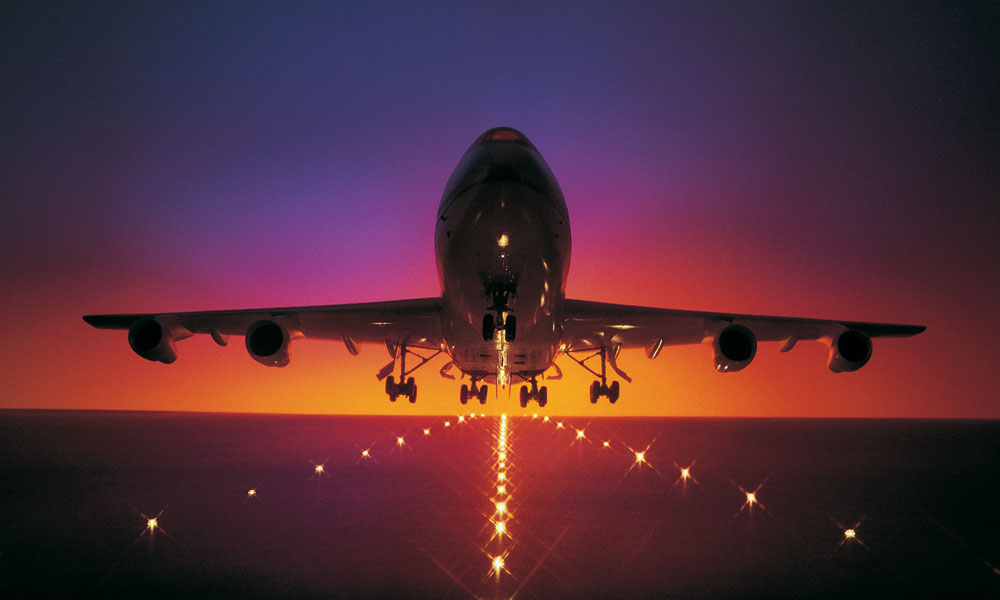
Fly On: American Airlines’ Merger With US Airways Gets Go-Ahead
The airlines’ concessions to the Justice Department will allow the deal—and the industry's consolidation—to move forward. Reaction from workers groups is largely positive, but one consumer advocacy group says travelers might feel the pinch.
The airlines’ concessions to the Justice Department will allow the deal—and the industry’s consolidation—to move forward. Reaction from workers groups is largely positive, but one consumer advocacy organization says travelers might feel the pinch.
The U.S. airline industry’s trend toward consolidation just passed a big test from the Justice Department.
On Tuesday, American Airlines and US Airways agreed to a series of concessions and service cuts that will allow for a merger between the two companies. The deal means that just four carriers—Delta, United, Southwest, and the merged American—will control 70 percent of the domestic market, according to the Los Angeles Times.
The decision surprised many in the industry, as the Justice Department sued to block the deal in August, saying it would lead to fewer options for consumers. But the concessions, mostly designed to benefit low-cost carriers, appeared to sufficiently allay the agency’s concerns.
Other points of note:
Industry groups react positively: Two front-line groups affected by the merger gave it the thumbs-up. “Merging with US Airways will remedy American Airlines’ longstanding network shortfalls and put American on equal footing with Delta and United. With the merger, American will offer travelers a viable alternative to Delta and United,” said Keith Wilson, president of the Allied Pilots Association, which represents the collective bargaining interests of 10,000 American Airlines pilots. The Association of Professional Flight Attendants (APFA), which represents 16,000 American Airlines personnel, took a similar stance, saying that input from the group was key to the Justice Department’s decision. “I want to thank our flight attendants for stepping up and making the case for this merger,” said APFA President Laura Glading. “Clearly, our voices were heard at the Justice Department. There is strength in unity.”
Good for travelers? Perhaps. The two airlines agreed to give up space at airports where the combined entity would have heavy presence, such as DC’s Reagan Washington National Airport and Boston’s Logan International Airport. According to The Washington Post, these spaces will go to low-cost carriers such as JetBlue or Virgin America. Without the deal, the Washington airport in particular would have been dominated by the merged entity: 69 percent of all flights at Reagan National are shared by the two carriers, a figure that led to the Justice Department’s suit in the first place, according to Steven Pearlstein of The Post‘s Wonkblog.
The Consumer Travel Alliance said such mergers are bad for consumers, while praising the Justice Department’s solutions to the issues in this particular deal.
“The remedies extracted by the Department of Justice (DOJ) are stronger than any previously demanded of merging airlines and should help ameliorate the anticompetitive thrust of this merger,” the group said in a statement. “Unfortunately, consumers, competition, and the free market, the entire reason for antitrust rules and regulations, took a hit.”
(iStock/Thinkstock)






Comments